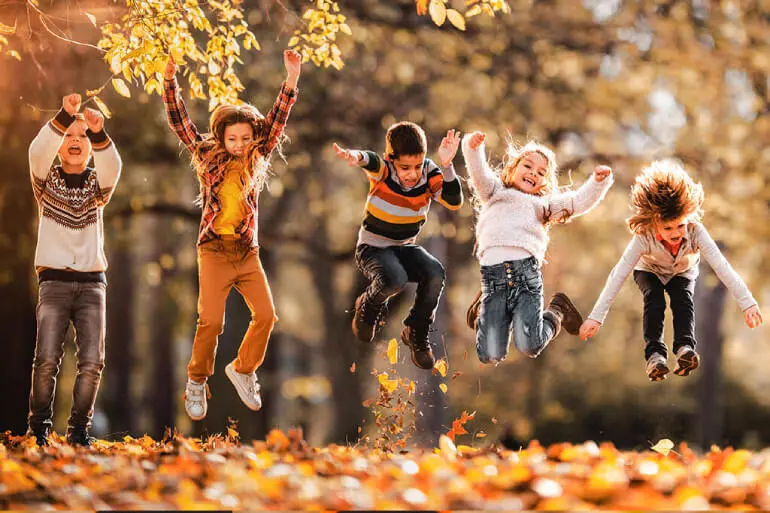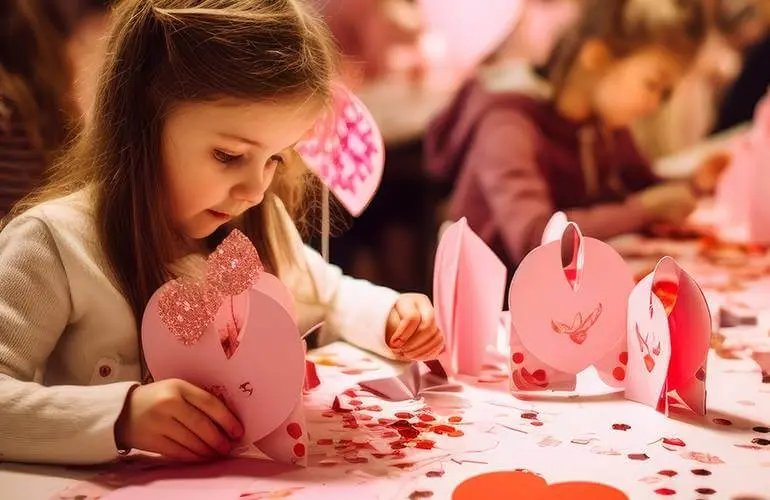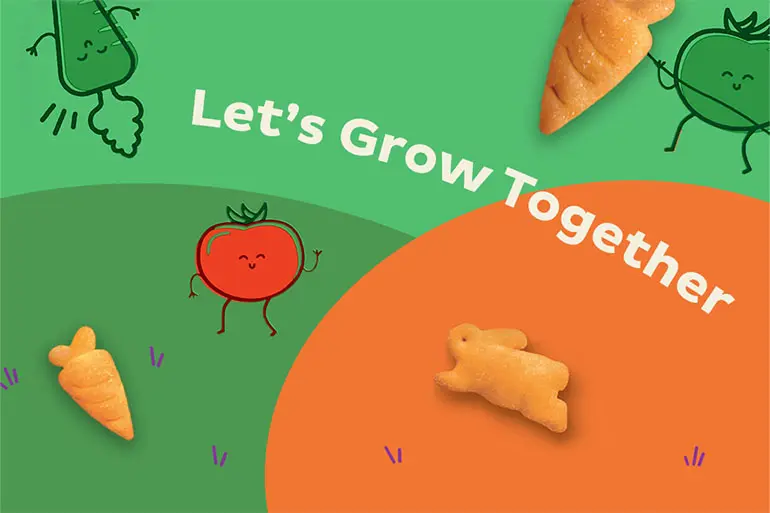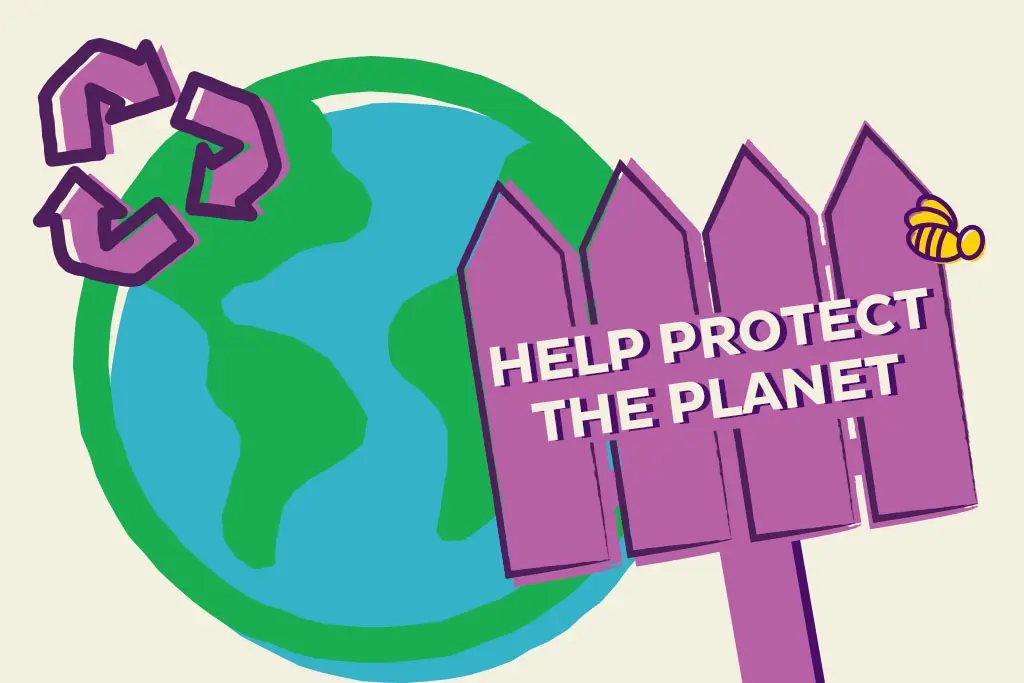
Let's Save the Earth
Ever wonder what you can do to help clean up the world around you? Turns out, we can do small things each and every day to help protect our planet! One way we can make a big difference is by practicing sustainability. Being sustainable at home means living in a way that won’t harm the Earth, which is a good way to be! Keep reading for some easy ways the whole family can practice sustainability to help our planet stay healthy.
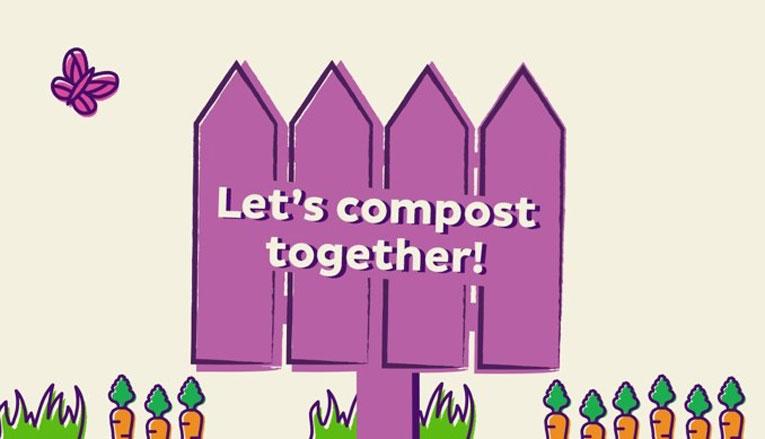
Composting made easy
You’ve probably heard of composting but may not know much about all the ins and outs. Don’t worry, we’re here to show how simple everything can be.
When we compost, we take all the things that we don’t eat or use from our gardens, as well as food leftovers, and throw everything together into a plastic container with little holes. Over time, as that food and waste break down, it becomes something called compost — which is like a superfood to help plants grow big and strong, like your little one!
You might be surprised by all the things you see and use every single day that can be used for compost:
- Things from nature: leaves, twigs, grass clippings, brush trimmings
- Food scraps: apple cores, banana peels, eggshells, cooked pasta, stale bread
- Other items from the kitchen: tea bags, coffee grounds, paper napkins
- Goodies around the house: toilet paper rolls, dryer lint
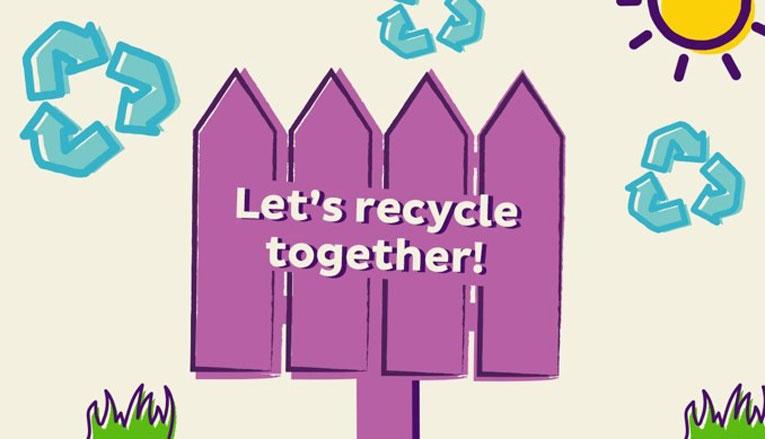
Reduce, reuse and recycle Annie’s products
Reducing, reusing, and recycling can be easy, but it sure helps when you know what you’re doing! Plus, if your kiddos get in the habit of doing all three, they’ll be more likely to keep it up for life. Here are some fun facts and handy tips to help each step go a bit more smoothly so the whole family can get on the right path to sweet sustainability.
Reduce
The biggest part of reducing is cutting back on the amount of garbage we make. Believe it or not, you might already do this without even realizing it! Here are just a few fun, easy ways to reduce:
- Pack your lunch (with your favorite Annie’s snacks) in a lunchbox instead of a throwaway bag.
- Try using reusable bags — whether you’re shopping for clothes or groceries, not only do reusable bags help eliminate waste, but they’re also quite a bit stronger than plastic bags or paper bags!
- Find a fun, reusable water bottle instead of those throwaway plastic bottles.
- Next time you have some tasty leftovers, try using resealable containers instead of plastic bags or wraps that can only be used one time.
Reuse
Reusing means finding new ways to use things instead of throwing them out. One of the best parts of reusing is how creative you get to be when thinking of all the different ways you can put the things you no longer need to better use. Need a bit of inspiration? We’re hoppy to help!
- Glass jars of all shapes and sizes can be used again and again. Whether you use them to hold your favorite colored pencils, your collection of coins, or even your go-to flavor of Annie’s Organic Bunny Grahams, you’re helping reduce waste!
- Donate or resell those clothes you no longer wear and toys no one else plays with instead of throwing them away. Not only is this a more sustainable way to live, but you’re also giving your old things to someone else who will appreciate them.
- Think outside the box with your next box of Annie’s snackity snacks. Cardboard boxes can be reused to make unique postcards, cut into different shapes for crafts, or composted for the family garden.
Recycle
Recycling is like giving new life to things that we’ve already used! When we recycle, we take things like paper, plastic, glass, and metal and send them to a special place where they can be turned into something new. For example, when we recycle plastic, the plastic can then be turned into new toys, water bottles, or even clothes!
Recycling is so important because it helps to keep our planet clean and healthy. When we recycle, we reduce the amount of waste that goes into landfills, which helps to keep our environment clean and safe.
Curious how you can recycle packaging from your favorite Annie’s products? We’ve made a super handy guide to help! Each picture below shows a recycling symbol you’ll see on every Annie’s product, as well as an easy-peasy explanation of how you can recycle those products.
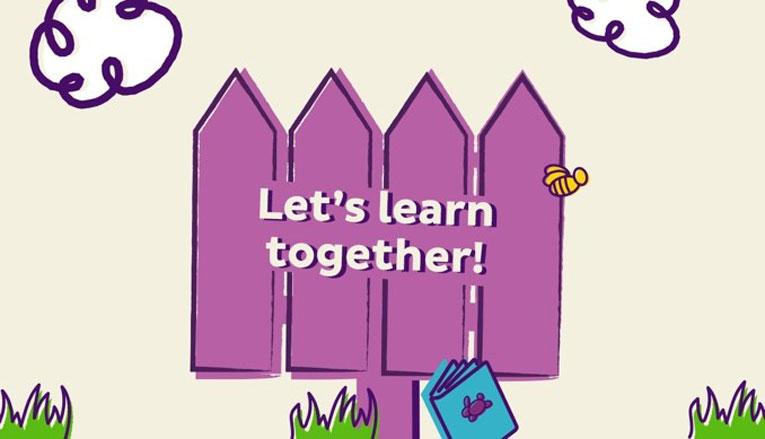
Earth Day vocabulary
Learning about the Earth and living a greener life might come with some newer (and bigger!) words you haven’t heard before. Here’s a fun vocabulary list to help. We even highlighted each one above to make it easier to learn about them with your kiddo.
- Biodegradable — able to be broken down by the action of living organisms such as bacteria.
- Biodiversity — the condition of having a wide variety of living things. If an area on the Earth has biodiversity, it means that there are many different kinds of animals and plants living there.
- Carbon dioxide — a gas without color or odor that is made up of carbon and oxygen. Carbon dioxide is in the air.
- Carbon footprint — the total amount of carbon dioxide and other greenhouse gases produced by a single person, organization, product, or process.
- Compost — a mixture of decaying leaves, vegetables, or manure that is used to improve garden soil.
- Conserve — to keep safe from loss, waste, or destruction.
- Crop rotation — a method of breaking disease cycles and renewing the fertility of the soil by planting a succession of different crops on the same piece of land.
- Ecosystem — a community of living things, together with their environment.
- Endangered species — a species of plant or animal that is in danger of becoming extinct.
- Efficient — operating or working in a way that gets results, with little wasted effort.
- Extinct — no longer existing.
- Fair trade — pertaining to an agreement made by a seller to pay fair wages to workers producing the seller’s goods in a developing country, or to the products produced under such an agreement.
- Fossil fuels — any carbon-containing fuel formed from the remains of prehistoric plants and animals. Coal, petroleum, and natural gas are examples of fossil fuels.
- Greenhouse effect — the warming of the Earth’s surface that takes place when heat from the sun is held in by the Earth’s atmosphere. The greenhouse effect can be caused by too much carbon dioxide being released into the air from the burning of fossil fuels.
- Habitat — the natural environment of an animal or plant.
- Landfill — a site used for waste disposal, or the built-up land created by the waste.
- Litter — a mess of waste materials or other objects scattered about.
- Organic — produced or producing naturally, without using pesticides or other added chemicals.
- Pesticides — a chemical substance used to kill insects that harm plants and crops.
- Pollute — to make dirty or harmful to health by mixing in or adding waste material.
- Recycle — to put through a process that allows used things to be reused.
- Reduce — to make less in amount or size.
- Regenerative agriculture* — a way of farming that works to pull carbon from the air and store it in the soil, where it can nourish a network of life and reduce greenhouse gasses in the atmosphere.
- Reuse — to use again or use more than once.
- Sustainability — related to a method of managing or using a resource so that the resource is never used up or forever damaged.
- Waste — using too much of something that is important to save, especially natural resources and products that come from them.
- * = denotes language found on Annies.com
- All other definitions can be found on kids.wordsmyth.net

